It’s always curious to note what kind of documentaries an organisation like the BBC chooses to make and what documentaries it chooses not to.
For example, a documentary about how terrible Gaddafi’s Libya was? Yeah, of course that got broadcast: complete with unverifiable stories and claims, menacing close-ups of the dictator’s face and appropriate use of sinister music.
A documentary about the slaughter carried about by the anti-Gaddafi ‘rebels’ and mercenaries – no, that’s a no-go area. And, for example, we’ve never had a documentary about long-time BBC employees like Jimmy Saville or Rolf Harris and their extremely dodgy activities.
So it’s curious that the BBC does choose to devote substantial resources and promotion to an entirely unnecessary documentary about a fictional Russian invasion of Latvia and how it triggers World War III.
World War Three: Inside the War Room is a one-hour film depicting pro-Moscow separatists taking over towns on the Russia-Latvia border, with the Kremlin then launching an invasion. This then prompts a ground offensive by American and British forces, which in turn provokes Russia into pushing the red button and launching a nuclear strike on a Royal Navy warship.
The fictional ‘war room’ is then informed that Vladimir Putin has chosen London as his next target.
The highly publicised one-hour programme jumps between fake documentary scenes set in Latvia, and scenes set in the ‘war room’, where ten important figures debate how to respond to Russia’s hypothetical attack and ultimately whether or not to engage in nuclear warfare.
While this programme is fiction and not a documentary, it could easily be mistaken by a casual viewer as a real-life news programme using real-world news footage, particularly given obvious parallels to the real-life events in eastern Ukraine.
Even aside from that, it is such a blatantly provocative and inflammatory piece of programming for the tax-payer-funded BBC to be putting out at this highly sensitive time in regard to Ukraine, NATO encroachments on Russia’s borders, and conflicting NATO/Russian actions/interests in Syria.
The programme, with its news-like scenes set in the Baltic States, could also be construed as a kind of dangerous self-fulfilling prophecy: setting out a desired scenario and broadcasting an ‘agenda’ in blatant terms.
If you think that’s ridiculous, bear in mind that something of the sort has happened before.
On 16th May 2004, one year prior to the 7/7 attacks in London, the BBC had broadcast a Panorama program discussing how to deal with a potential terrorist attack on London. The program envisioned three bomb explosions on the London Underground and one on a road vehicle; which, for an apparently speculative TV programme, is extremely (and suspiciously) similar to what actually did happen a year later.
Why specifically four explosions? Why not five? Or two? And why specifically three underground bombs and one road-vehicle?
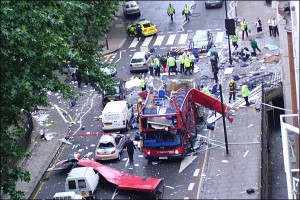
Give or take one or two details, the programme can basically be seen as a media dry-run of what would unfold on 7/7. The programme also discussed the planning of tightly-controlled media coverage of the attack and how to script the BBC News response; at one point, ‘taking control’ of the BBC is even discussed. The program included Michael Portillo, Home Secretary David Blunkett and the curious individual named Peter Power (whose company just happened to be carrying out a ‘terror drill’ on the morning of the real-life 7/7; a drill that happened to simulate the exact same scenario as the real-world ‘terror’ attack that was supposedly carried out that same morning).
A copy of the Panorama programme is predictably no longer available from the BBC website; until fairly recently there was a transcript of the 2004 Panorama ‘London Under Attack’ programme available on the BBC News website, but that too appears to have been removed.
In that instance, we had the BBC producing an hour-long programme in the style of a documentary, but which was depicting a supposedly ‘fictional’ scenario – which ended up actually being real-life a year later (with the real-life attack even involving one of the ‘expert’ panellists from the fictional programme).
That programme was also, like the new ‘World War III’ programme, structured as a table discussion involving a group of experts or significant figures, and it also involved the same style of fictional news reporting designed to mimic or anticipate real-world news coverage.
So is the BBC simply laying out something that’s actually *going* to happen, with foreknowledge of that agenda?
Why make this programme at this time? Why provoke Russian officials? And why openly choreograph what would be going on in the ‘War Room’ in the event of a Russian nuclear strike?
Shouldn’t that stuff be kept secret?
And why portray a situation in Latvia that doesn’t exist?
Why not just use the existing Ukraine scenario and make a fictional speculation on what might’ve happened had the conflict escalated?
Russian Ambassador to Latvia Alexander Veshnyakov has called the show a ‘dangerous provocation’, while there have also been various negative responses to the programme in various online forums.
Is this simply a propaganda exercise to firmly reinforce the idea of Russia as the big international villain? Is that what British citizens pay the BBC license fee for – for cynical propaganda and scaremongering?
It’s curious that the programme is also wholly based on the questionable premise that Russia’s support for separatists in eastern Ukraine was an unprovoked ‘invasion’ stemming purely from Russian expansionism – and then taking that premise and applying it to a fictional scenario unfolding in Latvia. It is of course a flawed premise, however, that doesn’t take into account the foreign meddling in the Ukrainian ‘revolution’ or the presence of neo-Nazi militias and foreign mercenary brigades.
Blatant and wholly unnecessary provocations like this force me to wonder if, as a number of theorists believe, this conflict is in fact a pantomime, with Big Bad Russia in fact being a form of ‘controlled opposition’ in order to play out a vast, pre-planned geo-political game.
I’ve usually argued against that; but sometimes we really have to wonder.
The BBC’s ‘World War Three: Inside the War Room’ is one of the worst, and certainly most blatant, propaganda exercises in recent memory.
But more worrying is trying to work out what its purpose is.

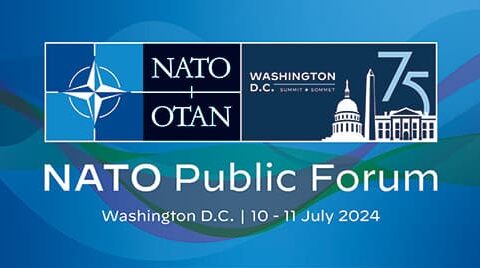
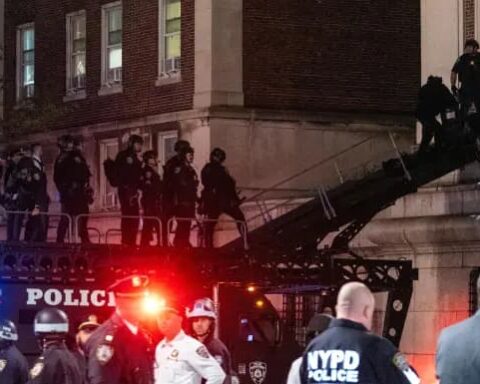
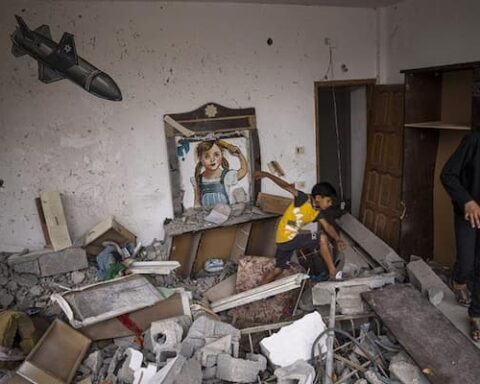
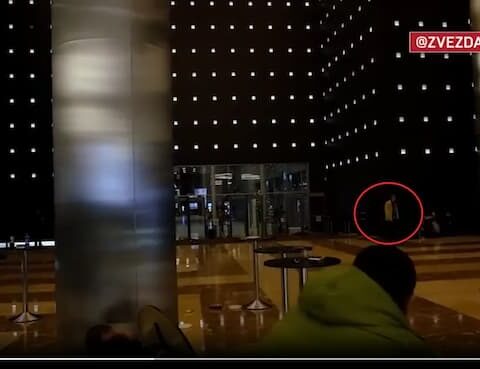
BBC calling this a “documentary” was in itself strange as well. They documented nothing – rather they spewed hate and venom. It has been called a “mockumentary” on Russian forums as that seems more appropriate term. Propaganda of the blackest type right at the time UK is debating keeping/dumping the Trident missiles and if they keep them the expense of upgrading them. Why they chose Latvia as the country is beyond me, nobody in their right mind would think Russia would want to take on the expense of that country any more than they want to pay for Western meddling in Ukraine. In 1991 Russia decided it didn’t want the extra baggage of all the former Soviet countries (the released internal records of CPC meetings available at hoover institute show) so why anyone but the elites would try to portray a renewed interest in them today is highly suspect.
In his interview in Italy last fall, Putin said only a crazy person would attack NATO, so does anybody really believe he would order an outright invasion of any NATO country? Plus, it is US not Russia that has a first strike doctrine of nuclear weapons. He knows full well US/UK/NATO have been baiting him in every way they can think of and he just sits back and waits, while continuing to enhance his defenses and the EEU, CSTO, SCO, BRICS orgs.
This seems like another feeble attempt to goad him into doing anything they can possibly use as an excuse to degrade Russia, Putin and all Russian people. It doesn’t work, as the sanctions have shown. Western and Russian attitudes when they feel threatened from outside are totally opposite. Western nations go on the attack and tend to blame the head of state. Russians take the threat differently and increase defense while supporting their leader more than ever. Western elites have yet to learn this difference in peoples.
Unless and until they do grasp this difference we are bound to see more of this type of wasted tax payer funds. At the same time, Cameron will continue his campaign of arresting people who don’t pay their BBC fee.
It does seem very much like a case of establishing a desired narrative; keep repeating the same narrative until people eventually believe it and it becomes the common perception.
Erm … because they are a set of fucking idiots with delusions of grandeur?
But David Attenborough still makes damn fine wildlife documentaries 🙂
The News Quiz and The Now Show aren’t bad either!?
They really are ramping up the propaganda now, before the war room programme (which I missed) there was a Panorama episdoe titled “Putins Secret Riches” (www.bbc.co.uk/iplayer/episode/b06z9584/panorama-putins-secret-riches) which was a complete smear where the only evidence/proof was the word of russians in exile who have an obvious grudge against Putin. To say it was flimsy reporting would only give the poor schleps at the beeb some hope that they could one day grow up to be real reporters. At least RT found it funny the next day, pointing out the obvious propaganda tricks and taking the piss out of the programme.
Then of course there was the Litvinenko report last month which found Putin “probably” ordered the poisoning of the defected spy. Although they used the word “probably” in their news broadcasts they gave it little or no prominance and carried on as if Putin had been found guilty in an international court of the murder.
But its not really that surprising that they are pushing the anti russian propaganda now; almost on a daily basis russia are showing the rest of the world how to deal with isis in Syria and the US coalition has egg on its face. So until they solve the problems of the middle east we all have to be aware that the beeb, and to some extent the rest of the western mainstream media, are going to be russia/putin bashing from dawn til dusk.
I didn’t see the Putin programme, but it doesn’t surprise me. This is how it goes. They broadcast a documentary on Gaddafi and Libya after the NATO intervention and it was all just clever, emotive editing tricks; menacing music, scary close-ups of his face, etc, accompanied by allegations and testimony that really couldn’t be backed up or confirmed.
And, like you say in regard to the Putin/Panorama show, they didn’t talk to any Gaddafi supporters or any actual people inside Libya, but relied entirely on the testimony of Libyan exiles and Western allies.
Reblogged this on sand49.